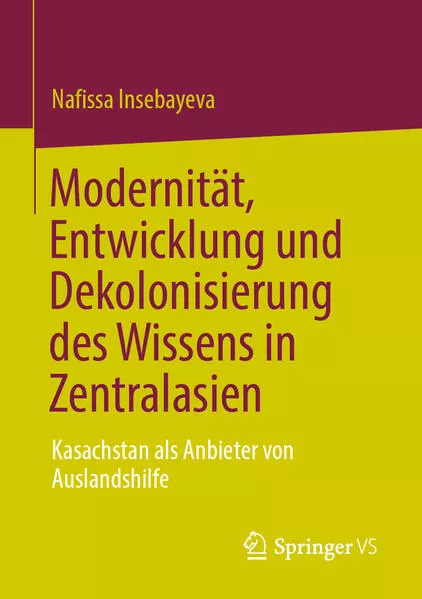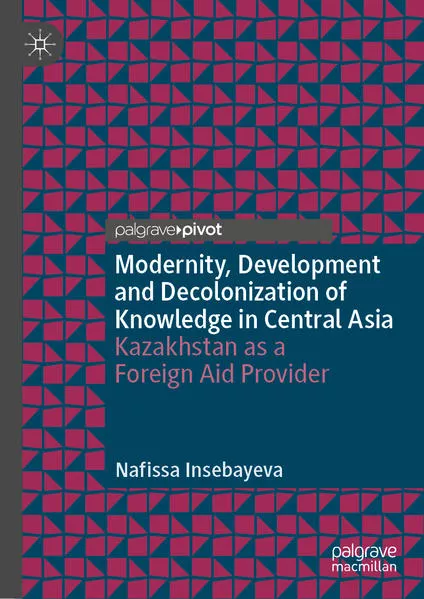
- Publikationen ca: 4
- Fragen & Antworten
Nafissa Insebayeva
- Modernität, Entwicklung und Dekolonisierung des Wissens in Zentralasien
- Modernity, Development and Decolonization of Knowledge in Central Asia
Nafissa Insebayeva specializes in Kazakhstan’s domestic politics, development cooperation and international development strategies. She holds a Ph.D. from the University of Tsukuba (Japan) and currently serves as a Researcher at the Nippon Foundation Central Asia-Japan Human Resource Development Project (NipCA).
Modernität, Entwicklung und Dekolonisierung des Wissens in Zentralasien
Dieses Buch fügt sich in die Diskussion über die Auslandshilfe ein, die durch das Aufkommen einer Vielzahl neuer Geber im Bereich der internationalen Entwicklung ausgelöst wurde, und untersucht den Wandel Kasachstans von einem Empfängerland zu einem Entwicklungshilfegeber.
Modernität, Entwicklung und Dekolonisierung des Wissens in Zentralasien
Dieses Buch fügt sich in die Diskussion über die Auslandshilfe ein, die durch das Aufkommen einer Vielzahl neuer Geber im Bereich der internationalen Entwicklung ausgelöst wurde, und untersucht den Wandel Kasachstans von einem Empfängerland zu einem Entwicklungshilfegeber.
Modernity, Development and Decolonization of Knowledge in Central Asia
This book joins the discussion on foreign aid triggered by the rise of multiplicity of emerging donors in international development and explores the transformation of Kazakhstan from a recipient country to a development aid provider.Drawing on fieldwork in Nur-Sultan and Almaty (Kazakhstan) between 2016 and 2019, this research evaluates the philosophy and core features of Kazakhstan’s chosen development aid model and explains the factors that account for the construction of aid patterns of Kazakh donorship.
Modernity, Development and Decolonization of Knowledge in Central Asia
This book joins the discussion on foreign aid triggered by the rise of multiplicity of emerging donors in international development and explores the transformation of Kazakhstan from a recipient country to a development aid provider.Drawing on fieldwork in Nur-Sultan and Almaty (Kazakhstan) between 2016 and 2019, this research evaluates the philosophy and core features of Kazakhstan’s chosen development aid model and explains the factors that account for the construction of aid patterns of Kazakh donorship.



